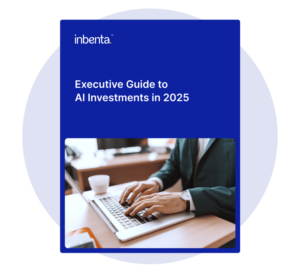Retailers are looking for ways to differentiate their online shopping experience from their competitors in a saturated market. After all, if customers can’t find what they’re looking for on your site or can’t get the support they need, they’ll simply look elsewhere.
The impact of artificial intelligence on the retail industry continues to grow as new AI-based tools become more affordable and easier to use. When deployed correctly, these tools can help retailers differentiate their services and product offerings, while boosting customer engagement.
According to Gartner, 80% of customer service and support organizations will apply Generative AI in some form — such as AI-supported chatbots — by 2025 to improve the customer experience (CX). GenAI will learn and adapt from customer interactions, getting better over time, allowing customer service teams to focus their attention on more complex customer interactions.
Here are some game-changing trends for retailers to keep an eye on:
Hyper-personalization
AI will allow e-commerce retailers to take personalization to the next level. By analyzing vast amounts of data, including customers’ purchasing behaviors and browsing histories, AI algorithms can be used to provide hyper-personalized product recommendations, whether on product pages, during checkout or in marketing campaigns. According to a report from McKinsey & Company, 78% of customers say personalized content made them more likely to repurchase from a brand.
AI-powered search
One issue that continues to plague many e-commerce sites is the search function, when customers can’t find what they’re looking for because they don’t use a literal or exact match in the search bar. With the help of AI, search and recommendation engines will become more sophisticated, improving the relevance of a search and helping customers find the products they’re looking for. Customers could even shop by style, rather than a specific brand or category.
Virtual assistants
Chatbots will also become more sophisticated, serving as virtual assistants with the ability to support natural language. By understanding the context of a conversation, they can provide more personalized customer support using conversational language. For example, chatbots will be able to answer questions, recommend products, track deliveries, open tickets and cancel orders.
Dynamic pricing
Dynamic pricing, which adjusts prices in real time according to market conditions, won’t just be the domain of ride-share companies. Already in use by some big-box retailers, self-learning AI algorithms can analyze massive data sets and suggest optimal pricing. This allows e-commerce retailers to adjust their pricing according to factors such as customer demand or competitor pricing.
Better inventory management
Using predictive analytics, AI can forecast future purchasing behavior. Armed with this data, e-commerce retailers can optimize their supply chain, ensuring they purchase the right products, and the right amount, to satisfy future customer demand (and vice versa). This can help retailers quickly adjust to changing customer sentiment in the market, while streamlining operations and minimizing costs.
More efficient deliveries
AI can also help optimize logistics, from managing warehouse operations (so there are fewer errors when products are picked and packed) to predicting the fastest and most cost-efficient delivery routes. For customers, that means faster fulfilment and fewer errors for a better overall experience.
When properly deployed, these powerful new tools can mean a simplified, personalized, intuitive shopping experience for customers. And for retailers, they offer a chance to improve their operations, enhance their customer service and stand out in a market that’s moving quickly toward an AI-powered future.










